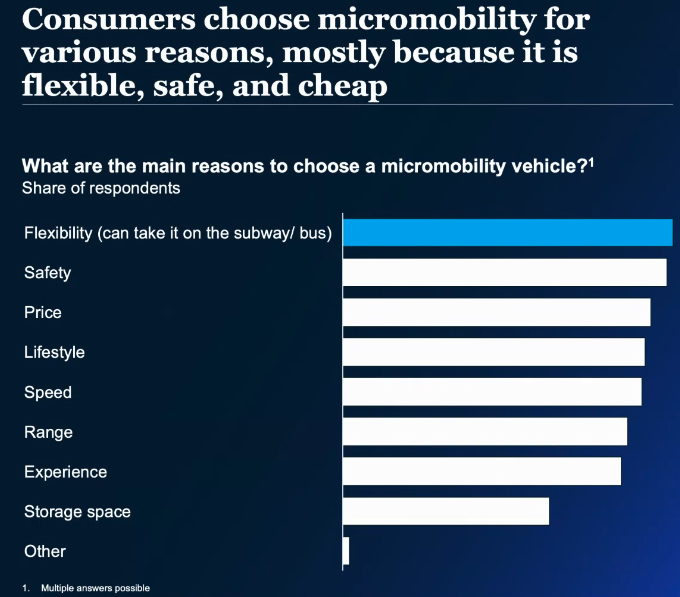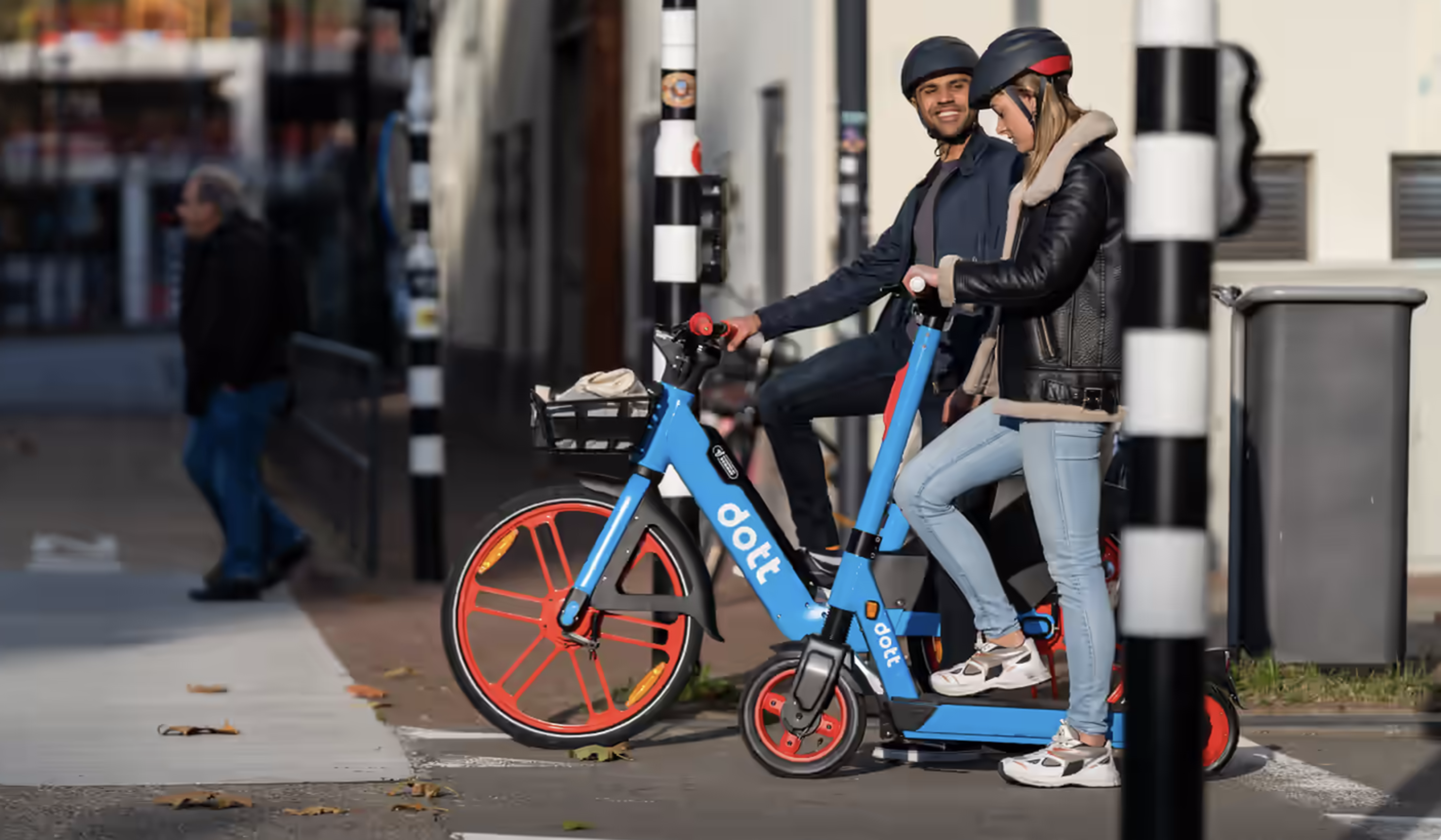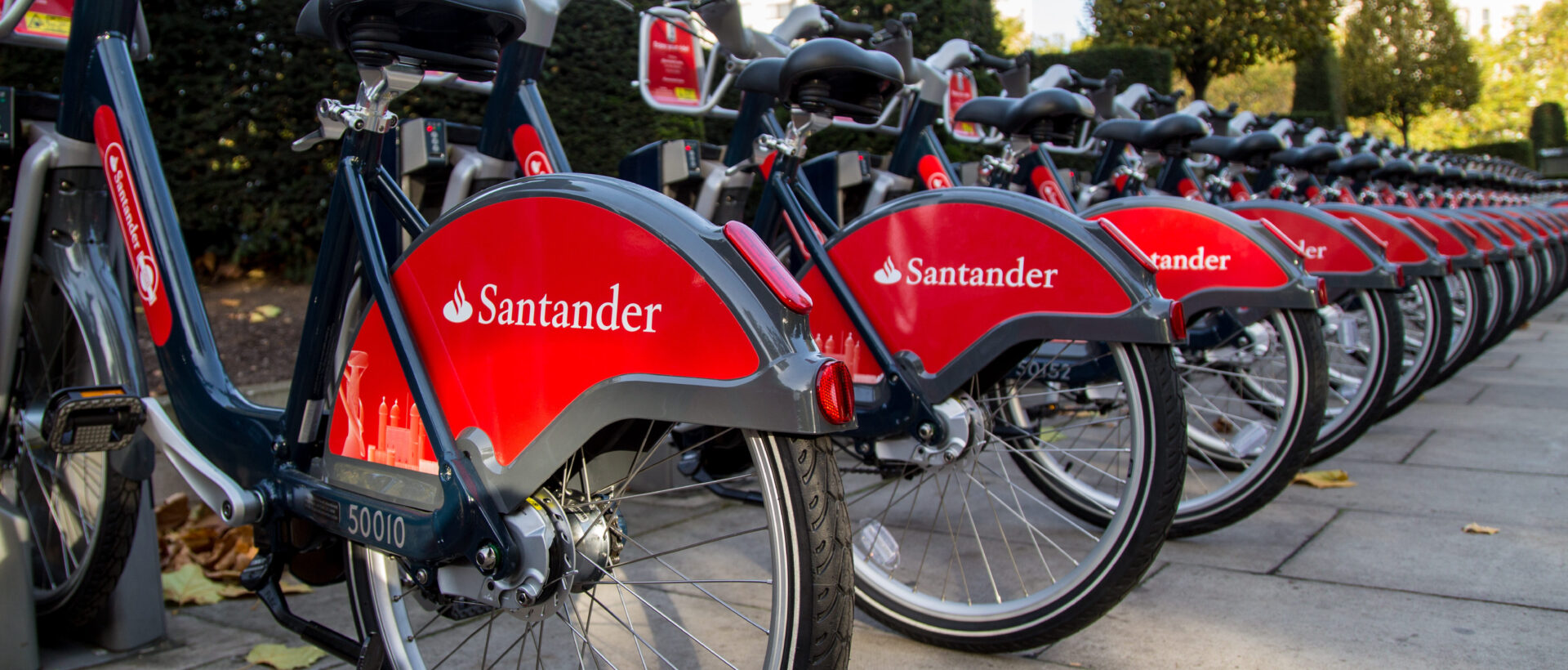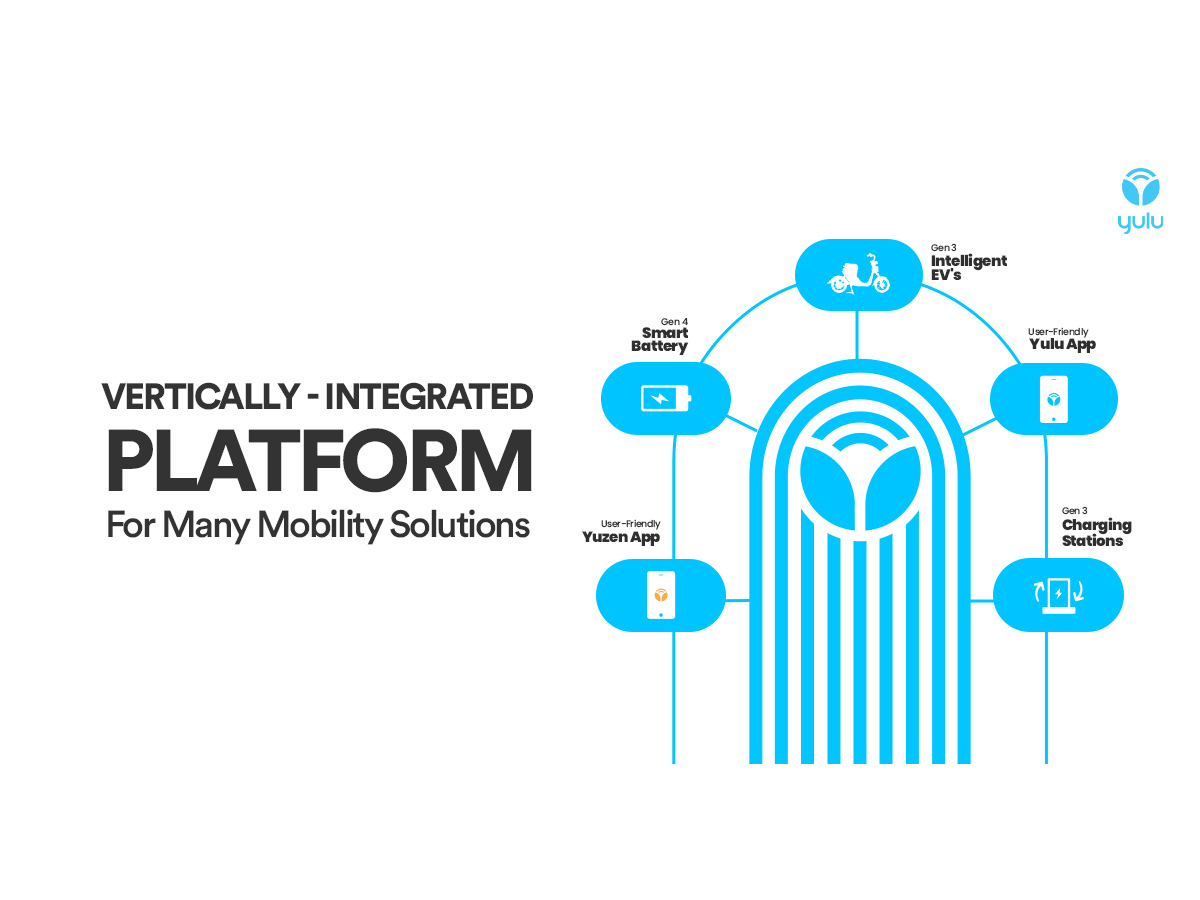On 19 January, Micromobility Industries hosted Micromobility World from Los Angeles, California. The event aimed to explore how small vehicles can reshape cities and contribute to a more sustainable future.
Despite the benefits of switching to smaller, electric-powered vehicles to reduce emissions and congestion, the continued uptake of micromobility is not a given.
Most notably, in April this year, residents of Paris are due to vote on whether to ban e-scooters from the city. This referendum has the potential to set a precedent for European policies, especially in countries such as the UK, where legislation is still up in the air.
In spite of this uncertainty regarding e-scooters, the McKinsey Center for Future Mobility (MCFM) estimates that the global micromobility market will be worth 260 billion USD by 2025, up from 180 billion USD in 2021.
Furthermore, at Micromobility World, MCFM highlighted the reasons why people choose micromobility, with flexibility, safety and price being the primary factors.

To build on these motivators, it is critical that the industry continues to create vehicles and policies that coincide with them in order to ensure a continued uptake of ridership.
An increased use of electric vehicles is regarded as key to combatting the current climate crisis. In response, the US has recently established the Joint Office of Energy and Transportation with the aim of having the energy and transport industries work together to break down the barriers to more sustainable transport.
Gabe Klein, Executive Director of the Joint Office of Energy and Transportation spoke at Micromobility World on the importance of urban design and policy to provide Americans with the choice of travelling more sustainably.
To promote the uptake of small electric vehicles, Klein argued that shared micromobility vehicles should become a public service, rather than simply running as private businesses. According to Klein, an increase in public-private partnerships would allow the mode to benefit from federal funding and subsidised or free fares, alike to local transit systems.
However, the use of public funding to advance the shift towards micromobility in the US is currently focused on private, rather than shared vehicles. For example, in cities such as Denver, residents can receive a rebate of up to 300 USD on the purchase of an e-bike or up to 500 USD towards an e-cargo bike. It should be noted that in most places no rebates for micromobility vehicle purchases exist, so this scheme is nonetheless ahead of the game.
In response to these policies, Julia Thayne, Principal of Climate Aligned Industries, RMI, questioned whether people instead required improved infrastructure to encourage them to ride, rather than credit towards the vehicles.
Although Klein admitted that ideally, a comprehensive network of segregated lanes would be built prior to the rollout of micromobility vehicles, he said he thought it was first necessary to increase ridership and the demand for such infrastructure to gain political support for their construction. The Joint Office of Energy and Transportation plans to increase the number of vehicles and cycle lanes in the US simultaneously.
Overall, Micromobility World highlighted that the global discussion surrounding micromibility vehicles is not slowing down. It is therefore hoped that ridership will also continue to increase alongside the growing number of innovations and advancements in the industry.













